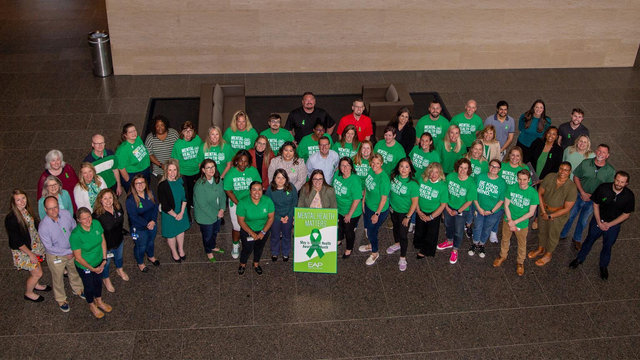
June 22, 2023
Company Mental Health Resources Are a ‘Business Imperative’

I’m proud to be part of a company committed to providing mental health and wellbeing resources that support its employees and their families. It’s a commitment Union Pacific made even prior to the pandemic.
In fact, our Employee Assistance Program was launched 50 years ago, in 1973. This program provides 24/7 confidential support to employees and their families facing problems related to mental health as well as personal or work-related problems ranging from stress management, emotional difficulties, substance abuse issues and crisis moments, such as a death in the family or other traumatic event.
But that’s just one of the programs we provide that support employee mental health and wellbeing. Our Occupational Health Nurse team, located across our 23-state system, promotes employee health and safety within their work units and the communities where we operate. Trained employees in our Peer Support volunteer network offer confidential advice and guidance to their teammates while strengthening bonds and a sense of community. Another volunteer effort is Operation Redblock, a joint labor-management effort that began in the late 1970s in response to increased substance use among railroad employees. It’s designed to educate, intervene and refer workers to appropriate support services to attain healthier, substance-free lifestyles.
Then there are our nine Employee Resource Groups (ERGs), each helping develop and support mental health programs while highlighting company resources to their members. For example, our disability resource group, called EASE, includes mental health as a main component of its efforts; and our military veterans resource group, UPVets, has a mission to destigmatize mental health challenges and PTSD.
A big part of the ERG mission is to make employees feel comfortable being able to bring their authentic self to work. Within the Diversity and Inclusion space, Union Pacific hosts ongoing listening sessions, many specifically focused on mental health. During the sessions, outside experts help guide the conversation with hundreds of employees who voluntarily choose to participate, including members of our Executive team who share personal experiences.
Outside of our organization, Union Pacific partners with community groups such as American Foundation for Suicide Prevention, Kim Foundation and The Wellbeing Partners, a group that helps facilitate our ongoing free educational webinars available to employees and their families on topics such as teen mental health and how to protect your mental health as a caregiver.
As part of a month-long campaign during May -- Mental Health Awareness Month – Union Pacific’s Workforce Resource group kept mental health topics at the forefront and dedicated an entire day to mental health awareness systemwide, encouraging employees to wear green and green ribbons in support of mental health awareness. We closed out the month by launching a new mental health and wellbeing resource website and free mental health online training.
On the horizon is a customized in-person mental health training class we’re piloting for managers through a partnership with the National Safety Council. Its goal is to increase understanding and teach managers how to respond to potential mental health challenges. The course will be tailored to include small class sizes; a detailed learning session about stigma and proactive action steps; and role-playing scenarios to put new knowledge into practice. Feedback from the pilot will be incorporated into broader offerings, available in early 2024.
Throughout my Union Pacific career, I’ve been fortunate to work with so many people with the common goal of Building America. Regardless of a person’s level or role, we all play an important part creating a culture that positively impacts and influences the overall health, safety and wellbeing of our teammates. That commitment is ingrained throughout this company.
A big part of that commitment is valuing mental health for its workforce. We believe we’re sending a strong message to our employees on the value we place on their mental health, which is central to employee quality of life.